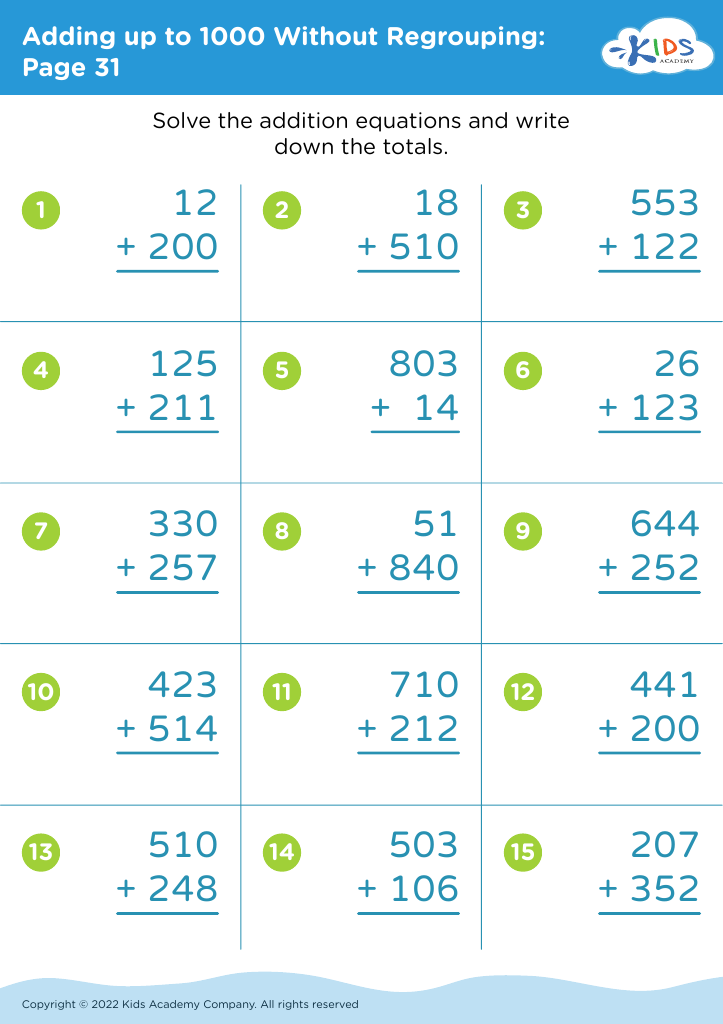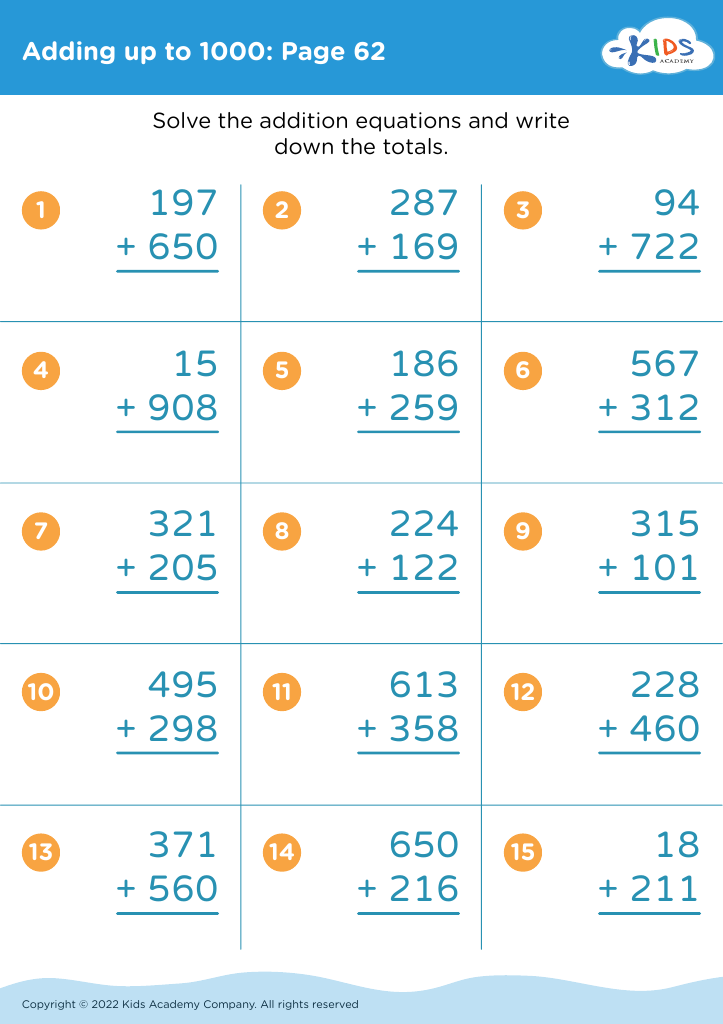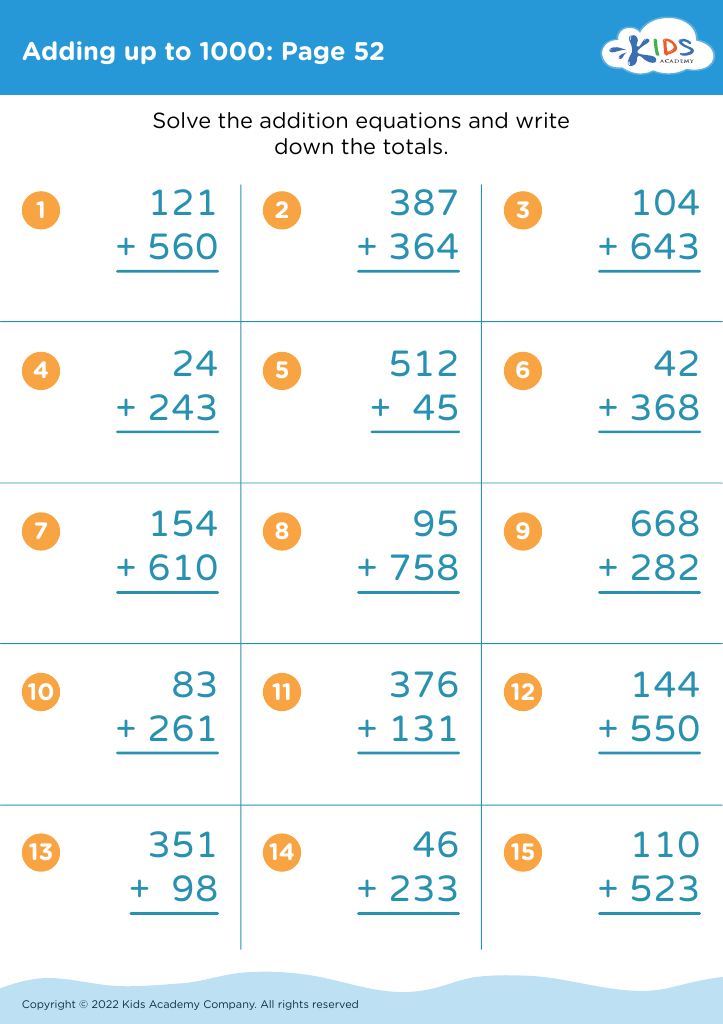Understand fractions Adding up to 1000 Worksheets for Ages 7-9
4 filtered results
-
From - To
Introducing our "Understand Fractions: Adding Up to 1000 Worksheets" designed specifically for children ages 7-9! These engaging worksheets help young learners grasp the concept of fractions, enhancing their math skills in a fun and interactive way. With a range of activities that focus on addition and visualization of fractions, students will build a solid foundation for future math achievements. Each worksheet encourages critical thinking and problem-solving, making math accessible and exciting. Perfect for classroom use or at-home learning, our resources foster confidence and proficiency in fractions while enhancing their overall numerical understanding. Start your child’s math journey today!
Understanding fractions and their relationships to sums, such as adding up to 1000, is crucial for children aged 7-9, as it lays the foundation for their overall mathematical competency. At this formative age, children are transitioning from concrete to abstract thinking. Grasping fractions facilitates not only arithmetic operations but also engages critical thinking skills. When children learn to manipulate fractions and understand how they can combine to reach a whole number, they develop problem-solving skills that are essential for future math concepts, like decimals and ratios.
Moreover, this understanding helps children make sense of real-world scenarios, such as sharing items equally or cooking recipes that require fractional measurements. Teachers incorporate these lessons to make connections between math and everyday life, ultimately helping children appreciate the practicality of what they learn. Parents, too, play a vital role by reinforcing these concepts at home, discussing activities like baking or budgeting together, allowing children to see fractions in action. Caring about such foundational math knowledge ensures children not only pass their exams but gain confidence in their abilities, setting them up for success in higher-level math and fostering a lifelong positive attitude towards learning.















